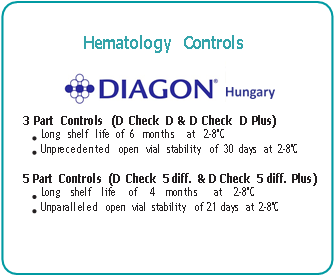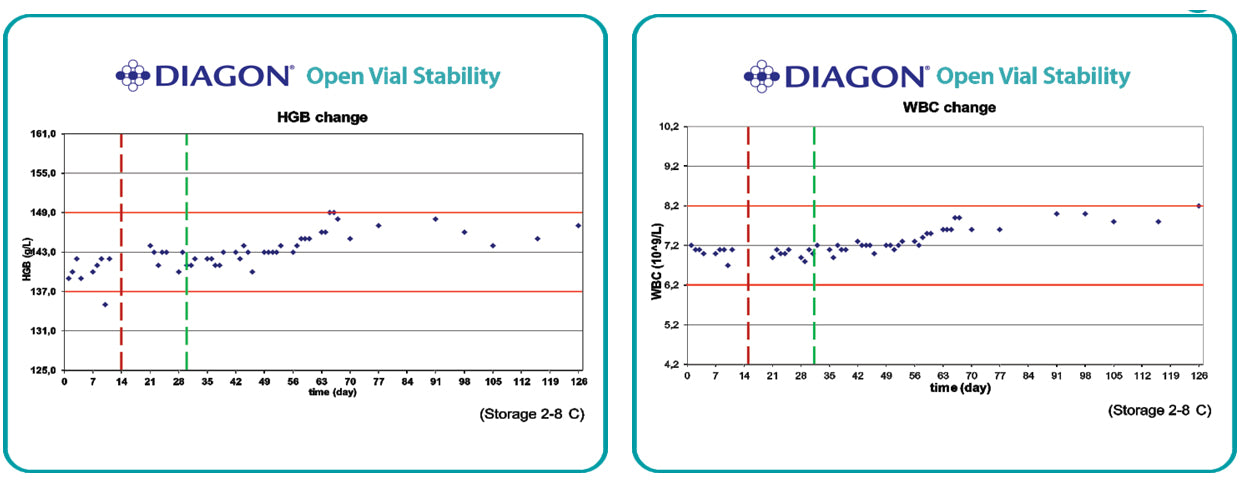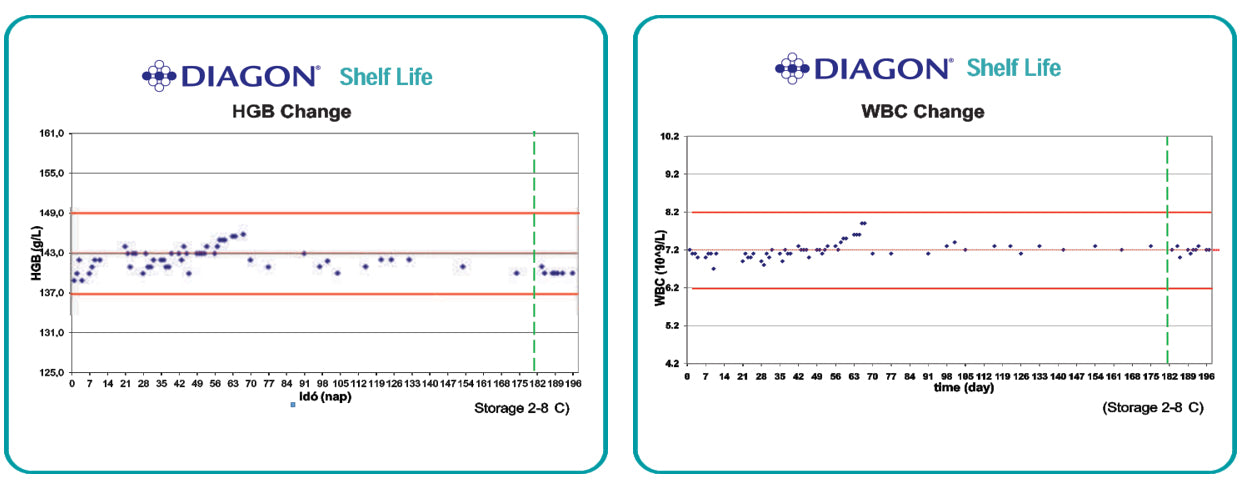Hematology Controls - 3 Part & 5 Part.
Hematology, a branch of medicine concerned with the study of blood, its diseases, and the involved organs and tissues, demands precise and accurate
results for optimal patient care. Central to achieving this precision in laboratories are hematology controls.
Why are Hematology Controls needed?
-
Quality Assurance
Hematology controls are essential to ensuring that hematology analyzers are working correctly. These controls contain known amounts of different blood components, and when tested, they should produce consistent results if the machine is working accurately.
-
Accuracy and Precision
To ensure that the results produced by hematology analyzers are both accurate (close to the true value) and precise (reproducible), controls are used regularly. Any deviation from expected results can indicate a problem with the instrument or the procedure.
-
Regulatory Compliance
Clinical laboratories are subjected to stringent standards and regulations. Using controls ensures that these laboratories comply with the guidelines set by regulatory bodies, ensuring patient safety.
-
Cost Efficiency
Inaccurate results can lead to misdiagnoses and mistreatments, which can be costly. By using hematology controls, laboratories can potentially save on costs related to retesting and reduce the chances of misdiagnoses.
Importance of Hematology Controls
-
Patient Safety
At the core of medical diagnostics is the well-being of the patient. Hematology controls provide a safeguard against inaccurate results, which can lead to incorrect treatment plans, jeopardizing patient health.
-
Lab Credibility
Regular use of controls establishes the credibility of a laboratory. When clinicians and patients trust the accuracy of lab results, it fosters a positive reputation for the facility and ensures continued patronage.
-
Early Detection of Instrument Issues
Regular use of hematology controls can detect issues with analyzers early on, allowing for timely maintenance or calibration, ensuring that the machines function optimally.
-
Consistency Across Shifts
Different technicians might work at different times in a laboratory. Using controls ensures that irrespective of who operates the equipment, the results produced remain consistent and reliable.
A success story based on Revolutionary Technology


Special service in collaboration with Diagon-Hungary

Controls & Calibrators for all leading models of:
- Mindary
- Sysmex
- Abbott
- Horiba
- Beckman Coulter
- Siemens
- Nihon Kohden
- Urit
- Rayto
- Dymind
- Genrui
- Diatron
Open Vial Stability of 30 days

Open Vial Stability of 30 days at 2-8oC

Shelf life of 6 months at 2-8oC
Comparative Stability: 5 Part Controls
Hematology controls play a crucial role in ensuring the accuracy and precision of blood cell counting instruments. The terms "3-part" and "5-part" refer to the number of white blood cell differentials that are monitored by these controls. Let's delve into each:

3-Part Hematology Controls
-
Differentials Monitored
3-part controls are designed for hematology analyzers that provide a three-part differential count of white blood cells (WBCs).
-
Three Parts
The three parts typically include lymphocytes, monocytes, and granulocytes. Granulocytes further break down into subtypes: neutrophils, eosinophils, and basophils.
-
Accuracy Check
The primary purpose of 3-part controls is to monitor and verify the accuracy of the hematology analyzer in identifying and counting the three main types of white blood cells.
-
Routine Use
These controls are commonly used in routine hematology testing to ensure that the instrument is providing reliable results for the major components of the white blood cell population.
-
General Hematology Testing
3-part controls are suitable for general hematology testing where a more detailed breakdown of white blood cell subtypes may not be required.
5-Part Hematology Controls
-
Differentials Monitored
5-part controls are designed for hematology analyzers that provide a five-part differential count of white blood cells.
-
Five Parts
In addition to lymphocytes, monocytes, and three types of granulocytes, 5-part controls also monitor immature granulocytes, which include bands and metamyelocytes.
-
Extended Differential Count
The main purpose of 5-part controls is to monitor a more extended differential count, providing a detailed breakdown of various white blood cell types.
-
Specialized Testing
These controls are particularly valuable in scenarios where a more detailed analysis is required, such as in the diagnosis and monitoring of specific diseases, infections, or hematological disorders.
-
Specialized Hematology Testing
5-part controls are commonly used in specialized hematology testing where a comprehensive understanding of the white blood cell population is necessary.
Key Points
-
Accuracy Assurance
Both 3-part and 5-part controls are critical for ensuring the accuracy of hematology analyzers in identifying and counting white blood cells.
-
Clinical Relevance
The choice between 3-part and 5-part controls depends on the clinical requirements of the testing. Routine testing may benefit from 3-part controls, while more specialized or detailed testing may require the use of 5-part controls.
Ensuring precise and dependable blood counts and tests in clinical laboratories is contingent on the use of high-quality hematology controls. Vanguard Diagnostics, in collaboration with Diagon of Hungary, stands at the forefront of quality control leadership by providing exceptional 3-part and 5-part Hematology Controls. Notably, Diagon is among the two exclusive manufacturers of Hematology Controls globally. Through our collaborative efforts, we have introduced groundbreaking controls characterized by unparalleled shelf lives and open vial stabilities. This innovative stride empowers laboratories of all sizes in India to achieve results of the utmost reliability, aligning with international standards.
Vanguard Diagnostics' commitment to elevating quality control in hematology is evident in our 3-part controls, boasting an extended shelf life of six months, a notable advancement surpassing competitors offering a mere three months. Similarly, our 5-part controls present a significant advantage with an extended four-month shelf life compared to competitor’s two months. These accomplishments solidify Vanguard Diagnostics' position as a distinguished leader, delivering premium Hematology Controls to clinical laboratories globally.



